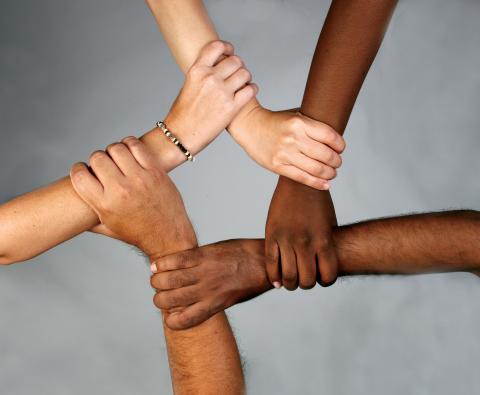‘Recession Racism’: a new trend in Irish society

The celtic tiger years brought a new phenomenon to Ireland; large scale immigration, and a more culturally diverse, and some would argue, tolerant society. That is until the bubble burst. A stricken economy and spiralling unemployment appear to have prompted a backlash against immigrants from many sectors of society. Racism is becoming increasingly prominent in Ireland with adverse effects for non-nationals, many of whom greatly contributed to the prosperous years. By Deirdra O'Regan.
Last week a shocking story came to light in local press. Over the last six months, a non-national Clondalkin family had been subjected to a campaign of "vindictive" and sustained attacks, including a petrol bomb attack on their home.
In this instance, the attacks were reported to the Gardaí, one of seven reported instances of racially-motivated criminal damage to homes of ‘minority groups’ in South West Dublin this year.
According to a report published in April by the European Union Agency for Fundamental Rights (FRA), Ireland ranks 14th for levels of discrimination, out of 27 countries surveyed. The survey revealed that 73 per cent of the Africans said they had experienced discrimination here. A substantial percentage also said there were places they would not enter for fear of discrimination or racially-based attack.
Another survey, released just this week by the FRA, revealed that more than half of sub-Saharan Africans in Ireland have experienced discrimination.
While a level of racism is always present in every society, before the economic meltdown it lurked at the fringes of Irish societal discourse. Most modern citizens would have been horrified, ostensibly at least, by the mention of anything perceived as remotely ‘racist’.
However, there are worrying signs that this has changed.
According to an Irish Times/Behaviour Attitudes opinion poll at the end of November, the vast majority (72 per cent) of Irish people want to see a reduction in the number of non-Irish immigrants living in the state.
Overall, a total of 43 per cent of those surveyed said they would like to see some, but not all, immigrants leave the State, while 29 per cent wish to see most immigrants leave. In contrast, just over a quarter (26 per cent) would like to see the number of immigrants remain as it is.
This hardening of attitudes towards immigrants was most pronounced among younger people, a reversal of trends from polls in recent years. Eighty one per cent of those aged between 18 and 24 would like to see the number of immigrants fall. Yet somewhat ironically, 40 per cent of those in the 18-24 age bracket say they are likely to emigrate over the next five years, while 15 per cent say they don’t know what they will do.
Crosscare Migrant Project, an NGO which provides information to migrants, has warned that Irish attitudes towards immigrants are set to worsen as people search for someone to blame for their worsening economic situation. Conor Hickey, director of the Crosscare Migrant Project, has said that Irish people “rolled out the red carpet for migrants” willing to do the jobs they which they did not want a few years ago. Now this carpet is being “rolled back” against a backdrop of rising unemployment and the threat of racism.
The increasingly negative attitudes towards non-nationals can be observed in media forums as well. Dil Wickremasinghe, who presents the show ‘Global Village’ on Newstalk, has publicly spoken about her experience of this. Ms. Wickremasinghe said she received a large volume of abusive text messages during a programme dealing with immigration. About 60 per cent of the texts received during a show discussing the call by Mayor of Limerick for the deportation of EU nationals who fail to secure employment in Ireland, were abusive.
Similarly, Politico has noticed a increase in the volume of racist feedback received during ‘Tonight with Vincent Browne’. Although, such messages are very rarely read out or posted to the website, the increase reflects a growing tendency to racism in Irish society.
There are about 400,000 immigrants, or non-nationals, living in Ireland today, representing about 10 per cent of the country’s population. Many are now the parents of Irish citizens. The number of non-Irish nationals on the Live Register has grown quickly in the last two years, from just over 20,000 (13 per cent) two years ago to now over 80,000 (20 per cent). This rise is largely due to the fact that immigrants, who had predominately been employed in the construction, industrial and hospitality sectors, are suffering a higher rate of job losses relative to the native Irish population.
Employment prospects for non-nationals are grim. The Economic and Social Research Institute has expressed “concern” at the potential for a backlash against the immigrant community in Ireland. Even in Celtic Tiger Ireland, the ESRI found that non-Irish nationals were three times as likely to experience discrimination while looking for work, while black people were seven times more likely. Recent studies show that candidates with identifiably foreign names are 50 per cent less likely to get called for an interview.
One group attempting to combat ‘recession racism’ are the people behind the ‘Love Music Hate Racism’ campaign. The group aim to promote racial integration and education through musically orientated events, public meetings and workshops. ‘Love Music Hate Racism’ events have been taking place across Ireland since their launch at the end of November. The organisers say: "(the) economic downturn has created the perfect breeding ground for anger towards immigrants, asylum seekers and foreigners in general. We want to take that anger and the ignorance and turn it into something good”.
Just over a year ago, AL Jazeera International featured a report on the problems immigrants face in Ireland, due to the economic downturn. The report can be seen here.
Updated: 16/12/09 19.03
Links added to substantiate statements.
